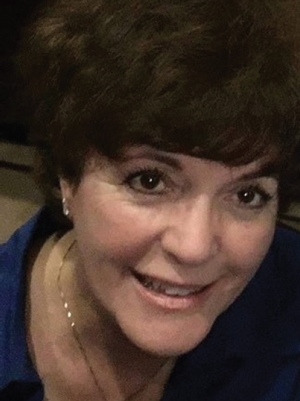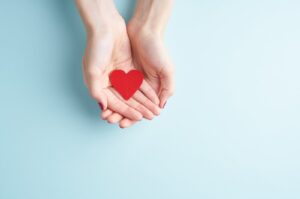Sleep: A Life Sustaining Activity
Dear Sleep,
I know we had problems when I was younger, but I love you now.
I could see my arm resting on my bed sheets. I saw the morning sunlight sneaking through the blinds landing in parallel stripes on my blanket. Trying to remember whether it was a school day or not, I tried to move my hand to sit up and peek at my clock.
It would not move.
I tried to move my arm. I commanded it to budge. Nothing! My head felt like stone — a heavy-not-moving-rock. I looked around my small bed; saw my bedspread at the bottom, saw my slippers nearby. But nothing would move on my body. I tried to yell. Nothing. So this is what it’s like to be dead, I thought. Nine years old and I’m a goner …
When I later told my mom about my near death experience over grilled cheese and tomato soup (it was a Saturday — no school), she listened and smiled. “That really is something,” she mused. “You’ll probably write about that someday.”
The mystery of sleep has challenged scientists to ask many questions: What happens to our minds and bodies? How important is it? What is the significance of dreams? More than just a time for shutting down the brain and resting, our bodies are buzzing with activity as we snooze. The data and information we gather during the day are processed and consolidated into the proper files in our minds. Cells repair tissue and hormones are synthesized.
Sleep is essential for everybody because we all store information every day as our bodies move and stretch, as we bang an elbow against a door jamb, or as we twist a knee by turning the wrong way. This is when our cells do their best work — organizing and fixing up bruised or overworked tissue. How much do we need?
- Newborns (0–3 months): 14–17 hours daily
- Infants (4–11 months): 12–15 hours
- Toddlers (1–2 years): 11–14 hours
- Preschoolers (3–5): 10–13 hours
- School age (6–13): 9–11 hours
- Teens (14–17): 8–10 hours
- Young adults (18–25): 7–9 hours
- Adults (26–64): 7–9 hours
- Adults 65+: 7–8 hours
There is such a thing as getting too much sleep, so I’m told. A few people need more than 10 hours a night, but for the average adult, sleeping more than the recommended span puts you at risk for metabolic issues, headaches, heart disease, back pain, and obesity. Still, I never met anyone who has said, “I’ve been getting too much sleep lately …”
Clocks, Cycles, and REMs
We all possess an internal clock called our circadian rhythm, which sets us on a 24 hour cycle where we phase between sleep and vigilance. Light (time to rise!), and darkness affect these cycles. Sleeping regularly enables the circadian rhythm to function and reduces the odds of insomnia.
There are three stages of non-REM (rapid eye movement) sleep before eye movement begins. We cycle through all phases a number of times each night as each REM period increases in time.
Stage 1 Non-REM we slip away from being awake as we experience a few minutes of light dozing. Breathing and heartbeat slow a little as our muscles relax. As a few muscles twitch, our brain is putting the brakes on daytime awareness transmitters.
Stage 2 Non-REM is the transition from light to deep sleep. As our temperature drops, muscles loosen up even more. Quieter brain function is interrupted by spurts of electrical surges. This is the stage we stay in the longest during sleep.
Stage 3 non-REM is the deep sleep that rejuvenates us. Our heartbeat and breathing are at their slowest rates during slumber. Brainwaves move slowly. It is difficult to awaken someone during this stage of sleep.
REM sleep kicks in around 90 minutes after falling asleep. As the eyes move rapidly from side to side, brainwave activity increases. Our heart rate and blood pressure rise to near waking levels while our breathing rate increases and fluctuates. This is when we dream. With age we spend less time in REM sleep. While all this is going on, we are burning calories to repair cells, digesting dinner (and that ice cream before bedtime), and organizing input the brain has gathered during the day.
Science has proven that sleep is as vital for our bodies as food and water. Pathways for storing new memories in our brains are created and maintained. Toxins in the body and brain are removed.
Night Life
Other phenomena occur after we drift off to sleep. One of them is dreaming, which is often connected to something that has recently happened to us. Stress seems to affect the quality of our dreams. Vivid dreams can be peaceful or dreadful and seem very close to reality. Lack of sleep and alcohol consumption can disrupt a good night’s sleep by triggering vivid dreams.
Lucid dreams are extremely vivid — during this time we know we are dreaming. Sometimes we can control the outcome of lucid dreams.
Another sleep interrupter is hyperhidrosis, or night sweats. These can be triggered by some medications or by sleeping in too warm a room. And then there’s menopause: hot flashes, power surges of the skin, heat waves, personal summers. For these and any night sweats, try keeping the room cool and avoid drinking alcohol.
What I experienced in my childhood when I could not move my body in bed was sleep paralysis — my mind was conscious but unable to make the rest of me move. As we fall asleep or are waking up, we are less responsive to the signaling from our brains, so sometimes we cannot respond to those signals. Although it seems to last a long time, it actually lasts only a few seconds. Sleep paralysis occurs most often in younger people.
Sleepless in Aiken
Not cutting enough Zs has adverse results. Cytokine production, a protein that blasts away inflammation and infection, is negatively affected. Lack of sleep makes the flu vaccine work less effectively. And we become more susceptible to colds. Not getting enough sleep also causes fluid to pool under our eyes to form dark circles and puffiness.
Clocking insufficient hours of sleep changes the way our bodies read hunger messages, which are then amplified into cravings. It also slows our reaction time, which affects driving and work performance. Long term sleep deprivation can lead to high blood pressure, diabetes, heart disease, stroke, and obesity.
We must schedule sleep as a top priority and stop whatever we are doing to stick to that schedule. What we do before bedtime is as important as getting to sleep.
Electronic devices zap us with a blue light that interferes with the production of the sleep hormone melatonin. The more exposure, the more delay in falling asleep. This is science — no one is immune to it. Studies show that teens are getting less and less sleep because of the time they spend on the computer, gaming, watching TV and videos, and checking phones and social media. Teens should have a digital curfew whereby the two hours before sleep is electronics- free.
Half a Mind …
Most animals basically sleep the way we do. But unlike we humans who use our entire brains to sleep, whales and dolphins must stay conscious while they snooze so that they break the surface of the water to breathe. Only one hemisphere — half their brain — falls asleep while the other stays partially awake to make sure they are safe.
Scientists don’t know why we sleep but they know it is important for our bodies and minds. Sleep seems to occur in the brain, and for now, perhaps that’s all we need to know. Make a resolution to improve your health and outlook on life by getting more of it. Your life depends on it.
I wish I was a kid again so everyone would be proud of me for taking a long nap.
Good Night
May you fall asleep in the arms of a dream,
so beautiful,
you’ll cry when you awake.
Michael Faundet
























